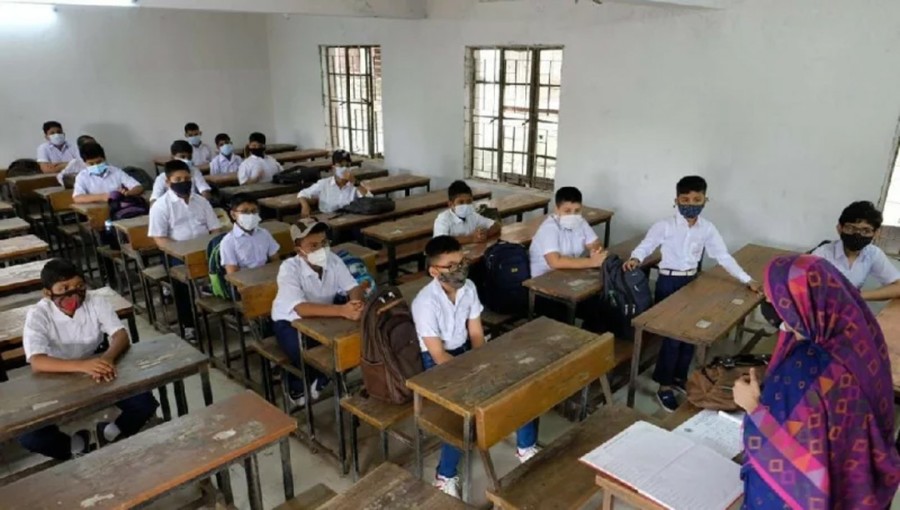The National Curriculum and Textbook Board (NCTB) has crafted a framework aimed at revolutionizing student assessment at the secondary level, emphasizing skills, competencies, and stress reduction under the new curriculum.
Officials revealed that the draft advocates for a uniform evaluation approach in internal examinations across different classes, paving the way for a more holistic assessment system.
With the introduction of the new curriculum, slated for full implementation by 2025, the framework prioritizes innovative evaluation techniques to alleviate the burden on students and foster creativity over rote learning. The emphasis is on practicality, assignments, and diverse question formats to gauge students' understanding.
Key highlights of the proposed evaluation method include project-based assessments, creative questionnaires tailored to students' experiences, and the gradual elimination of department divisions in grade 9. Additionally, the framework proposes the introduction of optional subjects in grades 11 and 12, promoting a more flexible learning environment.
To ensure fairness and transparency, the evaluation process will undergo rigorous scrutiny, with subject-based question papers tailored to students' abilities and the exam duration. A proficiency index (PI) will be introduced to provide a comprehensive overview of students' performance in each subject.
Furthermore, the transition to the new curriculum will be closely monitored, with a focus on continuous improvement based on pilot programs conducted at selective schools. Education Minister Mohibul Hasan Chowdhury Nowfel reaffirmed the government's commitment to adapt the curriculum as necessary, addressing concerns raised by teachers, students, and guardians.
As the education landscape evolves, the NCTB remains dedicated to refining the evaluation method, ensuring it aligns with modern pedagogical practices and fosters a conducive learning environment for students across Bangladesh.




























Comment: